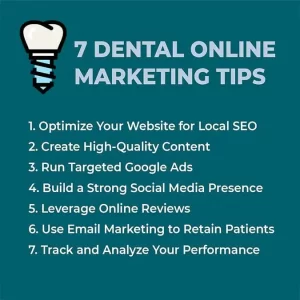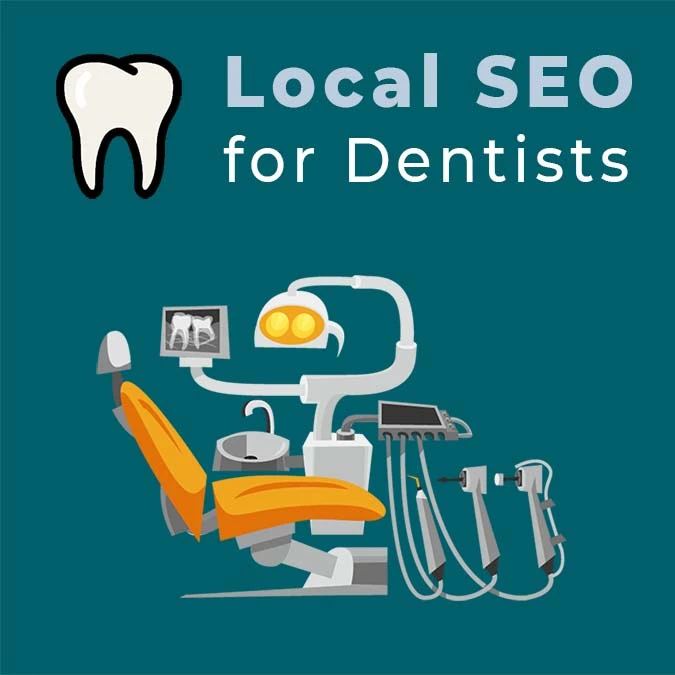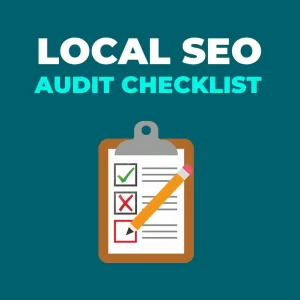What is Local SEO for Dentists?
Local SEO for dentists is a dental marketing strategy that helps your dental practice show up at the top of search results when people nearby search for a dentist.
Think of it like this: when someone types “dentist near me” or “dentist + [your city]” into Google, local SEO for dentists helps ensure your practice appears prominently, making it easy for potential patients to find you.
This not only boosts your visibility online but also increases the chances of local patients calling or booking appointments with your clinic.
By optimizing your online presence specifically for local searches, you can connect more effectively with those in your area looking for dental services.

What’s the difference between SEO and Local SEO?
The difference between SEO and Local SEO primarily involves the scope and targeting of the optimization efforts:
- SEO (Search Engine Optimization):
- Focuses on improving overall visibility and ranking on search engines globally or nationally.
- Targets broader keywords that are not necessarily linked to a geographical location.
- Suitable for businesses or content that targets a wide, diverse audience.
- Local SEO:
- Specifically enhances visibility for businesses within a local area.
- Uses geographically related keywords like “near me” or city names to attract a local audience.
- Ideal for businesses that serve specific communities, such as restaurants, clinics, and local retailers.
How Does Local SEO for Dentists Work?
Local SEO for dentists primarily involves optimizing your Google Business profile with up-to-date information and engaging content. Additionally, incorporating local keywords like “dentist in [City Name]” into your website helps search engines connect your practice with local searches. Strategies also include building local backlinks and publishing relevant content that resonates with community interests, all aimed at boosting your presence in local search rankings.
Local SEO Ranking Factors
For dentists looking to improve their local SEO, here are key factors that influence local search rankings:
- Google Business Profile: Complete and accurate profiles with regular updates and patient reviews.
- Local Keywords: Use of specific geographical tags in your website’s content, like city or neighborhood names.
- Online Reviews: Quantity and quality of reviews across Google, Yelp, and other relevant platforms.
- Local Citations: Consistency of your practice’s name, address, and phone number across all online directories.
- Backlinks: Quality and relevance of links from local businesses and industry-related sites.
- On-Page Optimization: Proper use of tags, meta descriptions, and keywords that reflect local search terms.
- Mobile Optimization: Ensuring your website is easily navigable on smartphones, as most local searches are done via mobile devices.
Why Every Dentist Needs Local SEO
Local SEO is crucial for dentists due to its direct impact on business growth and patient acquisition:
- Increased Visibility: 97% of consumers research local businesses online, making high visibility essential for attracting new patients.
- Rapid Conversions: 50% of mobile users visit a business within a day of a local search, underscoring the immediate benefits of local SEO.
- Competitive Edge: 88% of local mobile searches result in a call or visit within 24 hours, giving a significant advantage over less optimized competitors.
- Community Trust: 72% of local searchers visit businesses within five miles, enhancing community trust and engagement.
Optimizing for local SEO helps dentists attract more local patients efficiently, leveraging online searches to increase physical visits.
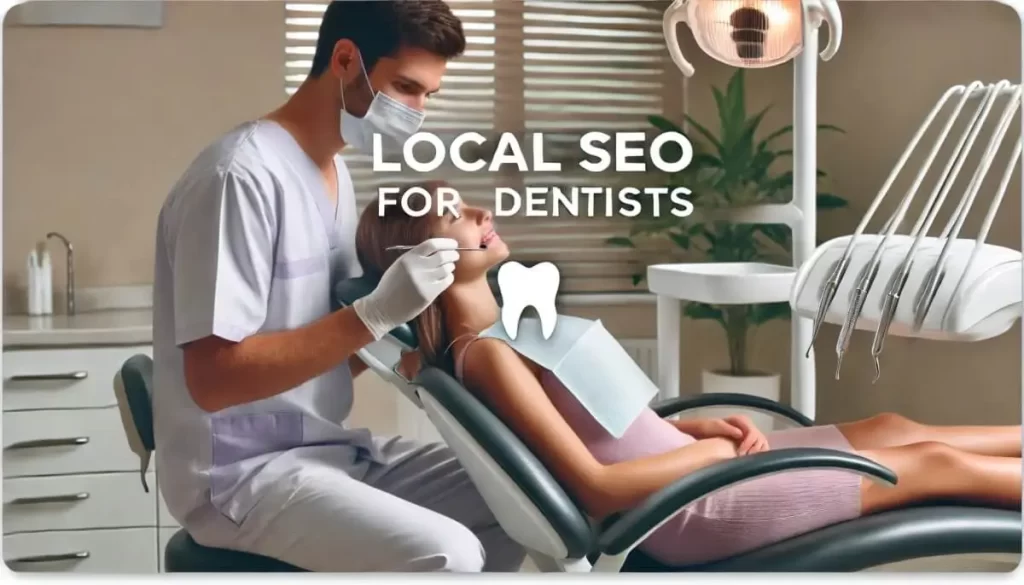
How to do Local SEO for Dentists
Here’s a checklist on how to do local SEO for dentists:
- Claim and Optimize Your Google My Business Listing
- Incorporate Local Keywords
- Optimize Website for Mobile
- Manage Online Reviews
- Build Local Backlinks
- Create Local Content
- Use Local Business Directories
- Implement Schema Markup
- Monitor Your Local SEO Performance
- Engage on Social Media
Claim and Optimize Your Google My Business Listing
- Claim Your Listing: Search for your dental practice on Google Business Profile (GBP), formerly known as Google My Business (GMB) and claim the listing if it exists. If not, create a new one.
- Verify Your Listing: Follow Google’s verification process, which may involve recording a video or receiving a code via mail, email, or phone.
- Update Your Information: Ensure your practice name, address, and phone number are accurate and match those on your website and other online profiles.
- Add All Possible Details: Fill out every section completely, including business hours, services offered, detailed business description, and any other available information.
- Upload Photos: Enhance your listing with high-quality photos of your practice, staff, and services.
- Encourage Reviews: Ask satisfied patients to leave positive reviews on your GBP.
How to Incorporate Local Keywords for Your Dental Practice
- Conduct Keyword Research: Use tools like Google Keyword Planner or Moz to identify relevant local search terms.
- Analyze Search Intent: Understand why users search for specific terms to tailor your content accordingly.
- Strategic Placement: Integrate local keywords into title tags, meta descriptions, headers, and website content.
- Include Geographic Modifiers: Add city or neighborhood names to service-related keywords (e.g., “dentist in [City Name]”).
- Regular Updates: Refresh your website content regularly to include new local keywords and maintain search relevance.
How to Optimize Your Dental Practice Website for Mobile
- Responsive Design: Ensure your website automatically adjusts to fit the screen size of any device, from desktops to smartphones.
- Fast Loading Speed: Use tools like Google PageSpeed Insights to test and improve your website’s loading times.
- Simplify Navigation: Design a simple, intuitive menu that makes it easy for mobile users to navigate your site.
- Clickable Elements: Make phone numbers and address links clickable for easy contact or directions.
- Test User Experience: Regularly test your website on various mobile devices to ensure all elements display correctly and function properly.
How to Manage Online Reviews for Your Dental Practice
- Encourage Reviews: Actively ask satisfied patients to leave reviews on your Google Business Profile (GBP) and other relevant platforms.
- Make It Easy: Provide direct links to review platforms in follow-up emails or texts after appointments.
- Respond Promptly: Acknowledge all reviews quickly, whether they are positive or negative.
- Address Concerns: For negative feedback, respond professionally and offer to resolve issues privately if necessary.
- Monitor Regularly: Use tools to track reviews across different platforms and stay informed about what patients are saying.
How to Build Local Backlinks for Your Dental Practice
- Partner with Local Businesses: Exchange website links or feature guest blog posts with nearby businesses.
- Join Local Associations: Get listed in directories of local business groups or chambers of commerce.
- Sponsor Events: Support local events or charities that link back to your site on their promotional materials.
- Engage in Local PR: Gain features in local news outlets or community blogs.
- Host Community Events: Organize events at your practice to attract local media and influencers who might link to your site.
- Contribute to Blogs and Podcasts: Write guest posts for local blogs and participate in podcasts to establish authority and secure backlinks.
How to Create Local Content for Your Dental Practice
- Develop Location-Specific Pages: Create individual pages for different local areas, such as “Dentist near [City]” or “Dentist on [Main Street].” Tailor the content to address the specific dental needs and interests of each location.
- Incorporate Google Maps: Embed Google Maps on your location-specific pages to help patients find your practice easily and improve your site’s local SEO.
- Highlight Local Events: Write about community events your practice participates in or sponsors, linking these activities to the health benefits they bring.
- Seasonal and Local Health Tips: Offer advice relevant to local climate conditions or seasonal activities that could impact dental health.
- Feature Local Patient Stories: Share testimonials or case studies from patients in specific neighborhoods to personalize and localize your content further.
How to Use Local Business Directories for Dentists
- Identify Relevant Directories: Focus on directories like Yelp, Healthgrades, and the local chamber of commerce website. Also consider industry-specific directories such as Dentists.com or the American Dental Association’s online directory.
- Ensure Consistency: Keep your practice’s name, address, and phone number (NAP) consistent across all listings.
- Update Regularly: Check and update your listings periodically to keep information accurate.
- Encourage Reviews: Ask satisfied patients to leave reviews on these platforms to enhance your visibility.
- Leverage Features: Take advantage of features like posting articles or special promotions to increase engagement.
How to Implement Schema Markup for Dentists
- What is Schema Markup? It’s code added to your website to help search engines understand and display your content more effectively.
- Select Schema Types: Use types like
DentistorDentalClinicto describe your services accurately. - Implement Details: Add schema for practice details like name, address, and hours.
- Include Reviews: Apply the
Reviewschema to showcase patient feedback in search results. - Tool for Implementation: Use Google’s Structured Data Markup Helper to generate and apply schema markup.
- Validate Markup: Check your implementation with Google’s Structured Data Testing Tool to ensure accuracy.
Proper schema markup boosts search visibility, improving local SEO and attracting more patients.
How to Monitor Your Local SEO Performance for Dentists
- Set Up Tracking Tools: Utilize Google Analytics and Google Search Console to track website traffic and search performance.
- Check Rankings Regularly: Use tools like SEMrush or Ahrefs to monitor your rankings for local keywords.
- Analyze Traffic Sources: Identify which local SEO efforts are driving traffic to your site by reviewing the acquisition reports in Google Analytics.
- Monitor Reviews and Listings: Keep an eye on your Google Business Profile and other directory listings for changes in reviews and information accuracy.
- Evaluate Engagement: Track how visitors interact with your site through metrics like bounce rate and session duration to gauge content effectiveness.
Regularly monitoring these aspects ensures you can optimize your local SEO strategy to continually attract more patients.
How to Engage on Social Media to Support Local SEO for Dentists
- Post Regularly: Maintain an active presence by posting regularly about your services, dental tips, and community involvement.
- Use Local Hashtags: Include local hashtags to reach potential patients in your area and increase local visibility.
- Engage with Followers: Respond to comments, questions, and reviews to build relationships and show community involvement.
- Promote Reviews: Encourage satisfied patients to share their positive experiences and tag your practice.
- Collaborate Locally: Partner with other local businesses on promotions or events and share these collaborations on your platforms.
By actively engaging on social media, dentists can enhance their local presence, indirectly boosting their local SEO for dentists through increased online visibility and website traffic.
FAQs about Local SEO for Dentists
How long does it take to see results from Local SEO efforts?
While results can vary depending on your current online presence and competition, most dental practices begin to see noticeable improvements within 3 to 6 months of consistent Local SEO efforts.
Regular updates and maintenance can help sustain and grow these results over time.
What is Google Business Profile (Google My Business)?
Google Business Profile (once known as Google My Business) is a free tool that helps your dental practice manage its online presence across Google, including Search and Maps.
Optimizing your profile allows you to appear in the local “3-pack” when potential patients search for dental services in your area, significantly boosting your visibility.
Do online reviews affect my local SEO ranking?
Yes! Positive online reviews are a major factor in local SEO. Google considers reviews when ranking businesses in local search results. Encouraging your satisfied patients to leave reviews can help boost your practice’s ranking and credibility.
How can I track the success of my Local SEO for dentists campaign?
You can track the success of your Local SEO campaign through various tools like Google Analytics, Google Search Console, and third-party SEO software.
Metrics such as increased local traffic, higher rankings in search results, and more phone calls or appointment bookings from your website are indicators of success.
Can I do Local SEO for dentists on my own, or should I hire an expert?
While it’s possible to manage Local SEO on your own, hiring an expert ensures that all the latest strategies and tools are effectively used.
This saves time and ensures that your practice stays ahead of the competition by optimizing every aspect of your online presence, from keywords to listings.
What common mistakes should dentists avoid in Local SEO?
Dentists should avoid neglecting their Google Business Profile, inconsistent NAP (Name, Address, Phone Number) across listings, and failing to regularly update their website. Additionally, ignoring patient reviews and not optimizing for mobile users can harm your local rankings.
How does local SEO differ from traditional SEO for dentists?
Local SEO specifically focuses on attracting patients within a geographic area by optimizing for location-based keywords, ensuring your practice appears in local search results. Traditional SEO, on the other hand, focuses more on improving overall search engine rankings without the local focus.
How often should I update my local SEO efforts?
Local SEO requires ongoing attention. Regular updates to your Google Business Profile, consistent review management, and periodic content updates are necessary to maintain and improve your local search rankings.
What are the best tools for local SEO for dentists?
Tools like Google Business Profile, Google Analytics, SEMrush, Moz Local, Ubersuggest and BrightLocal are highly recommended for managing and enhancing your local SEO efforts.
Articles Related to Local SEO for Dentists
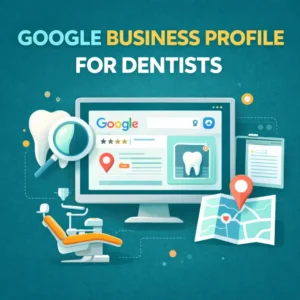
Google Business Profile for Dentists: How to Set Up and Optimize It
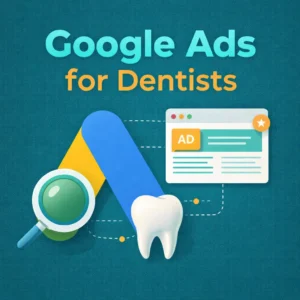
Google Ads for Dentists: The Complete 2026 Guide
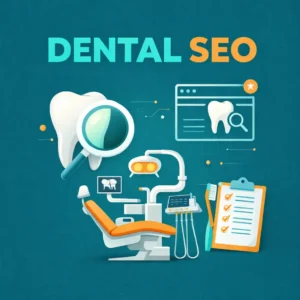
Dental SEO: A Complete Guide for Dentists (2026)

Social Media for Dentists: Grow Your Practice Online
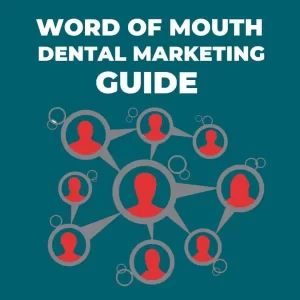
Word of Mouth Dental Marketing Guide: Grow Your Practice
